15 HR initiatives Employees Will Love!
In the ever-evolving landscape of human resources, understanding the essence of HR initiatives is paramount.
This article demystifies the significance of these initiatives, shedding light on their underlying benefits, the strategic goals propelling them, and the contemporary trends sculpting their future.
We’ll journey through 15 transformative HR strategies that promise to elate and empower employees.
From the serene sanctuary of wellbeing workshops to the dynamic pulse of team-building activities, these HR initiatives are the cornerstone of an enriched and fulfilling workplace experience.
Let’s discover how these strategies can redefine the essence of work and employee satisfaction.
Contents
Why are HR initiatives Important?
What are the Benefits of HR Initiatives?
15 HR Initiatives Employees Will Love!
- Wellbeing Workshops
- Flexible Working Hours
- Remote Work Opportunities
- Personal Development Plans
- Regular Employee Feedback Sessions
- Recognition Programs
- Career Development Programs
- Transparent Communication
- Diversity and Inclusion Initiatives
- Employee Mentorship Programs
- Team-Building Activities
- Employee Wellness Programs
- Social Responsibility Initiatives
- Employee Surveys
- Work-Life Balance Initiatives
How to Successfully Implement HR Initiatives
Challenges in Implementing HR Initiatives and How to Overcome Them
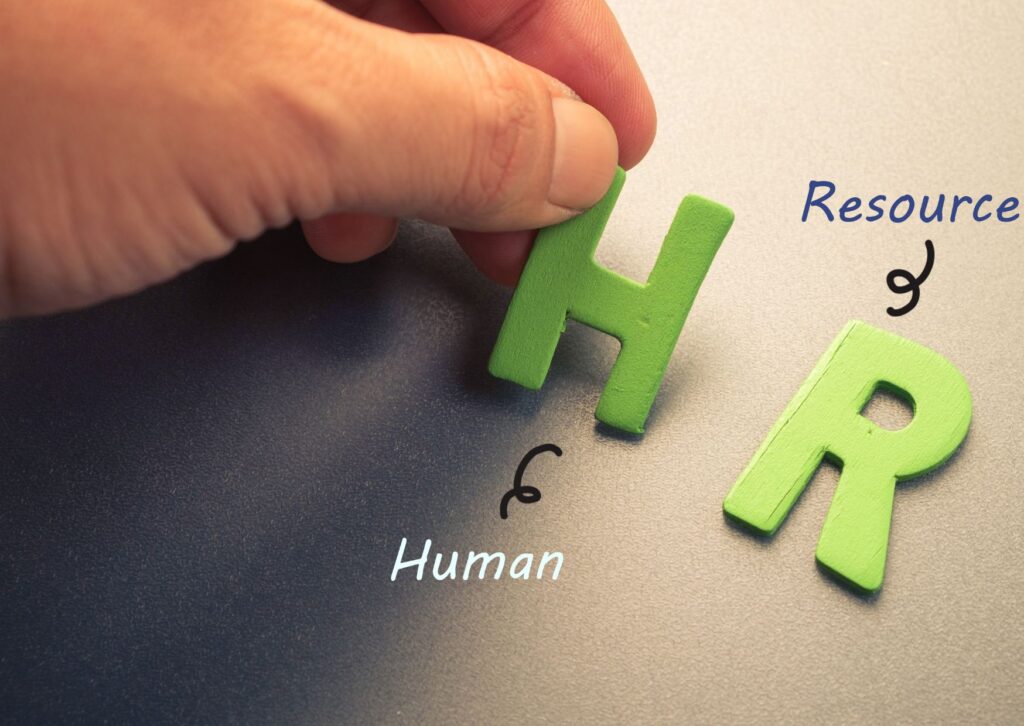
What is a HR Initiative?
An HR initiative, in simple terms, is like a well-thought-out action plan or strategy crafted by your company’s Human Resources department.
Imagine it as a quest embarked upon by HR knights to solve a specific problem or make a positive change in your workplace kingdom.
From arranging fun team-building activities that encourage camaraderie, to rolling out comprehensive wellness initiatives to keep everyone fighting fit, HR initiatives come in many exciting forms.
They are the secret ingredients that can transform your everyday working life into an engaging, rewarding experience.
Think of these initiatives as proof that your company cares about you, beyond just your work.
It’s about promoting a healthy work-life balance, fostering a welcoming environment, and ensuring everyone feels valued and heard.
Why are HR initiatives Important?
Imagine a world where work was just a four-letter word.
No growth, no perks, no employee engagement initiatives.
Doesn’t sound too appealing, does it?
That’s where HR initiatives come riding to the rescue!
HR initiatives are the secret sauce that makes your job more than just a paycheck.
They’re about fostering a vibrant company culture where you feel valued, heard, and motivated to reach new heights.
These initiatives are the heartbeats of any organisation. They help to attract and retain top talent, boost employee morale, and even improve productivity.
At their core, HR initiatives reflect an organisation’s commitment to its employees’ wellbeing and positive employee experience.
They’re a company’s way of saying, “We see you, we value you, and we’re invested in your success.”
HR initiatives aren’t just important – they’re absolutely essential.

What are the Benefits of HR Initiatives?
Have you ever wondered why some companies feel like a second home, radiating a vibe of enthusiasm, unity, and productivity?
The secret sauce is HR initiatives!
HR initiatives are like the fairy godmother of the corporate world, bestowing a bundle of benefits that make the work experience not just bearable, but enjoyable.
One of the sparkling benefits is the vibrant, inclusive company culture these initiatives cultivate.
A HR department that implements innovative hr initiatives can help to foster a sense of belonging and unity, making the workplace feel more like a family gathering and less like a chore.
Another fantastic perk is the potential for personal and professional growth.
HR initiatives often include skill-building workshops, mentoring programs, and continuous learning opportunities, allowing you to blossom and expand your horizons.
But the magic doesn’t stop there.
HR initiatives also help attract top talent and help with employee retention.
Why would anyone want to leave a company that cares so deeply about their wellbeing and growth?
Lastly, these initiatives are productivity boosters.
A well-cared-for employee is a motivated and efficient one. It’s like watering a plant, leading to a flourishing garden of productivity and success.
So, the next time you benefit from an HR initiative, remember, it’s not just a random act.
It’s a carefully crafted strategy implemented by HR professionals to motivate employees, make their working life brighter, better, and more rewarding.

What are Popular HR Trends?
Welcome to the exciting world of HR trends, where the human side of business meets the future!
Like a fashion show unveiling the latest styles, HR trends are all about what’s in vogue for creating a great workplace.
Remote Work
Thanks to technology, the office now comes to you!
HR professionals have noticed that remote work has surged in popularity, providing flexibility and comfort to employees.

Employee Wellbeing
Hr professionals and companies are now focusing more than ever to improve employee mental and physical health.
Think yoga classes, mental health resources, and wellbeing workshops!
Diversity & Inclusion
Businesses are embracing diversity and inclusion, creating a vibrant and welcoming environment for everyone, irrespective of their background.
Continuous Learning
With the pace of change accelerating, companies are offering learning opportunities to keep employees up-to-date and ready to take on new challenges.
Employee Experience
The spotlight is now on enhancing the overall employee experience, from onboarding to day-to-day engagement, making work not just a task, but a joy!

HR trends are like the pulse of the workplace, reflecting the evolving needs and desires of employees.
They’re the key to helping HR leaders turn a good workplace into a great one!
15 HR Initiatives Employees Will Love!
In the dynamic landscape of the modern workplace, the role of Human Resources is not just about hiring and firing anymore.
It’s about creating an environment where employees feel valued, motivated, and happy.
Here, we’ll dive into 15 HR initiative examples for hr professionals that will make your team members hearts sing.
1. Wellbeing Workshops
Let’s start with one of the most impactful initiatives – wellbeing workshops.
These are like tune-up sessions for the mind and body, where employees and team members learn practical skills to manage stress, maintain physical health, and enhance mental resilience.
Whether it’s increasing motivation, coping with stress techniques, or education on creating lie-changing habits, these workshops are innovative HR initiatives to nurture a healthier, happier workforce.
Plus, they send a clear message: “We care about you, beyond just your work”.
By fostering a culture of continuous learning and self-improvement, hr teams can witness a notable uptick in team collaboration, innovation and employee performance.
Furthermore, as word spreads about these initiatives, companies also gain a competitive edge in talent acquisition.
Prospective employees are increasingly drawn to workplaces that prioritise holistic wellbeing, making these workshops a strategic asset in attracting top-tier talent.
In essence, by investing in the comprehensive wellbeing of their teams, HR teams are not only enhancing the work-life of team members but also positioning themselves as forward-thinking leaders in the modern corporate landscape.
2. Flexible Working Hours
Imagine a workday that adapts to you, rather than the other way around.
With flexible working hours, this dream can become a reality.
This initiative allows employees to tailor their work schedules to fit their personal life, reducing stress, boosting employee engagement and employee performance.
It’s a simple yet powerful way to show respect for employees’ time and personal commitments.

Furthermore, by embracing such HR initiatives, companies are not only fostering a culture of trust but also enhancing overall productivity.
When employees have the autonomy to choose their work hours, they often align their tasks with their peak energy levels, leading to better quality work and fewer errors.
Additionally, this flexibility can be a significant factor in talent retention.
In an age where work-life harmony is highly valued, offering flexible hours can be a decisive factor for potential recruits and current employees considering other opportunities.
It’s a testament to the company’s adaptability and its commitment to evolving with the changing dynamics of the modern workplace.
According to Flexibility matters, 43% of employees say that flexible working hours allow them to be more productive.
3. Remote Work Opportunities
The traditional office is evolving, and remote work is the new frontier for many organizations.
Offering remote work opportunities opens the door to a more comfortable and flexible work environment, minus the commute!
It’s a powerful way to boost morale, improve work-life balance, and even increase employee performance.
Plus, it shows that the company trusts its employees to work independently, strengthening the bond between them.

Beyond these immediate benefits, embracing remote work as part of HR initiatives also broadens the talent pool.
Companies are no longer restricted to hiring talent in their immediate vicinity but can onboard professionals from across the globe.
This diversity brings in a range of perspectives, experiences, and skills, enriching the organisational culture.
Additionally, with the reduction in overhead costs associated with physical office spaces, resources can be reallocated to employee development, employee wellbeing sessions, training, and other growth-oriented activities.
In the long run, remote work opportunities can also lead to a reduction in carbon footprint, aligning the company with sustainable and environmentally-friendly practices.
It’s a forward-thinking approach that resonates with both current employees and potential recruits, emphasising the company’s adaptability and commitment to modern work trends.
4. Personal Development Plans
Everyone likes to feel they’re growing and moving forward.
Personal development plans offer a roadmap for employees to develop new skills, take on new responsibilities, and ascend the career ladder.
By facilitating personal growth, this initiative boosts motivation and job satisfaction, fostering a culture of continuous learning and advancement.
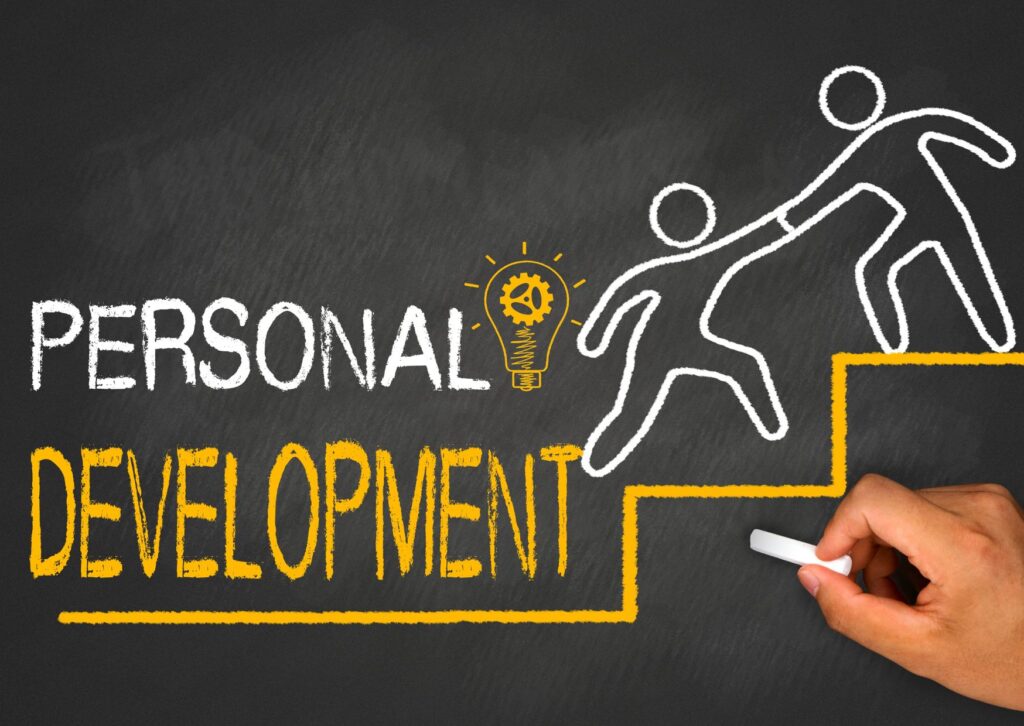
When these plans are integrated as a core component of human resources initiatives, they demonstrate the company’s vested interest in the long-term success of its employees.
It’s not just about meeting organisational goals but also aligning them with individual aspirations.
When employees see a clear path of progression, they are more likely to stay committed to the company, reducing turnover rates.
Additionally, as employees achieve their milestones, they become ambassadors of the company’s growth-centric ethos, attracting like-minded professionals to the organisation.
Personal development plans also facilitate better communication between managers and their teams enhancing employee engagement.
5. Regular Employee Feedback Sessions
Feedback is the breakfast of champions, as the saying goes.
Regular feedback sessions provide employees with valuable insights into their strengths, areas for improvement, and potential growth opportunities.
This initiative fosters open communication, promotes learning, and empowers employees to take charge of their professional development.
Plus, it shows that the company values its employees’ contributions and is invested in their growth.
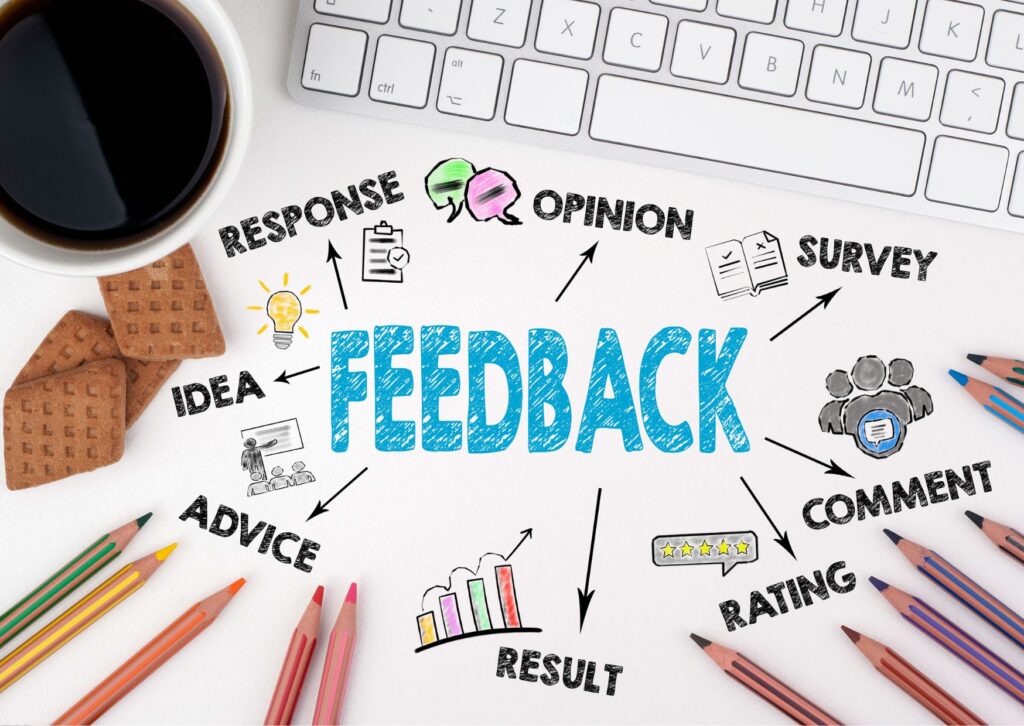
In addition to the above benefits, integrating regular feedback sessions as a HR initiative helps in building a culture of trust and transparency.
When employees feel heard and understood, it cultivates a sense of belonging and loyalty to the organisation.
These sessions also enable managers to identify and address potential challenges or concerns proactively, ensuring that small issues don’t escalate into bigger problems.
Furthermore, by recognising and celebrating achievements during these sessions, companies can boost morale and motivation, leading to increased productivity and enthusiasm.
On the flip side, constructive feedback provides a clear direction for improvement, allowing employees to focus on areas that can enhance their performance.
In the grand scheme of things, regular feedback sessions are not just about performance reviews.
These sessions are about building strong, collaborative, and growth-oriented relationships within the organisation.
6. Recognition Programs
A little recognition goes a long way in making employees feel valued and motivated. Recognition programs that celebrate employees’ achievements, big or small, can significantly boost morale.
It’s like saying a big “thank you” to the employees for their hard work and dedication, fostering a culture of appreciation and respect.

When recognition programs are strategically integrated into HR initiatives, they serve as powerful tools for employee retention and engagement.
Employees who feel acknowledged are more likely to stay loyal to the company, reducing turnover rates.
Additionally, employee recognition programs can be tailored to align with organisational goals, encouraging behaviours and outcomes that drive business success.
Publicly acknowledging and rewarding top performers sets a positive example for others, promoting a competitive yet collaborative environment.
Even small tokens of appreciation, like personalised notes or shout-outs in team meetings, can have a profound impact improving employee engagement and more.
In a world where the employees seeks not just monetary compensation but also emotional fulfilment, recognition programs stand out as a testament to a company’s commitment to its people.
7. Career Development Programs
Career development programs provide employees with the tools, resources, and opportunities to grow within the organisation.
By investing in employees’ career growth, companies can not only retain top talent but also nurture future leaders.
It’s a win-win situation, for both the employees and the company.

In the context of strategic HR initiatives, career development programs encompass a range of opportunities, from skill-building workshops to mentorship pairings, all designed to elevate an employee’s professional journey.
As team members engage with these tailored growth paths, they not only enhance their individual capabilities but also contribute more effectively to the company’s overarching goals.
The ripple effect of such programs is profound.
These programs can foster a culture where learning is celebrated, and ambition is rewarded.
This proactive approach to career progression also positions the company as an employer of choice, attracting individuals who are eager to invest in their long-term growth.
Ultimately, by championing the professional aspirations of its workforce, the company solidifies its reputation as a nurturing, progressive, and dynamic place to work.
8. Transparent Communication
In any relationship, communication is key – and the workplace is no different.
Transparent communication fosters trust, promotes understanding, and prevents misunderstandings.
It’s about keeping employees in the loop, inviting their input, and valuing their opinions.
This initiative cultivates a culture of openness and respect, where every voice is heard, and every opinion matters.

Implementing transparent communication, as one of the pivotal HR initiatives, has far-reaching implications for organisational health.
When employees feel informed about company decisions, strategies, and challenges, they are more likely to feel a sense of ownership and alignment with the company’s mission.
Such transparency can also lead to better decision-making, as diverse perspectives are considered, leading to more comprehensive solutions.
Moreover, in times of change or uncertainty, transparent communication can be the anchor that keeps the workforce grounded, reducing anxiety and speculation.
By actively seeking feedback and encouraging open dialogues, companies can address concerns, celebrate successes, and collaboratively brainstorm solutions.
In the long run, a commitment to transparent communication not only enhances employee engagement but also solidifies the company’s reputation as an ethical, inclusive, and employee-centric organisation.
9. Diversity and Inclusion Initiatives
A diverse and inclusive workplace is a vibrant and innovative one.
Diversity and inclusion initiatives aim to create an environment where everyone, regardless of their background, feels valued and respected.
These initiatives can range from diversity hiring policies to inclusion training programs, fostering a culture of respect and appreciation for differences.
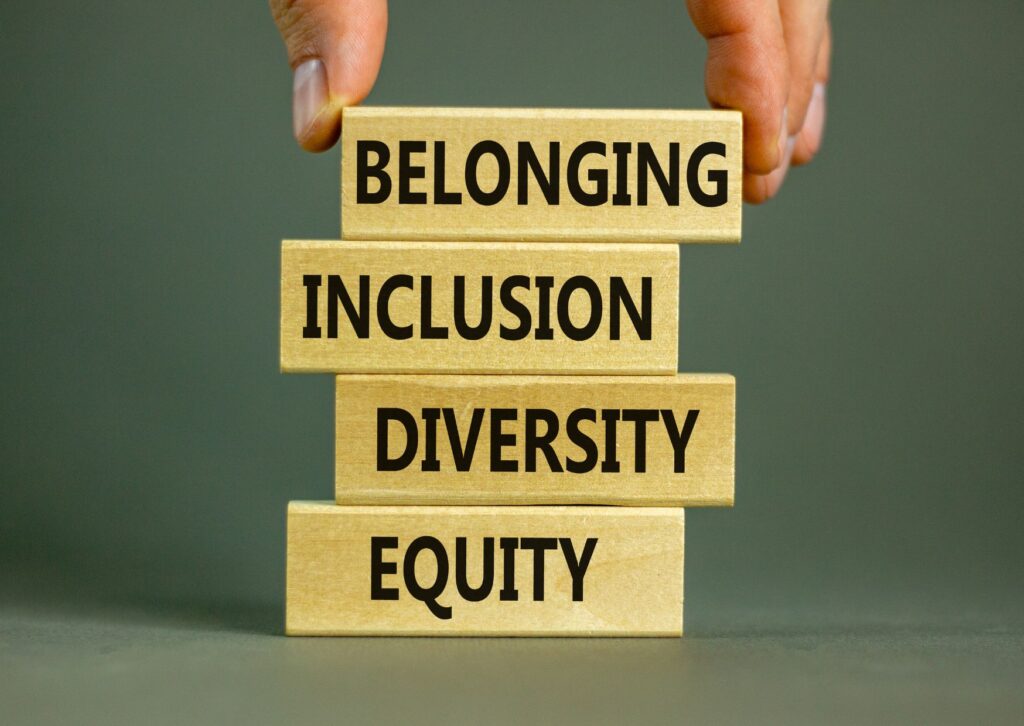
Embracing diversity and inclusion as a core HR initiative offers multifaceted benefits to organisations.
A diverse workforce brings a plethora of perspectives, ideas, and experiences, leading to enhanced creativity and problem-solving.
It’s not just about representation.
It’s about harnessing the collective strength of varied backgrounds to drive innovation and growth.
Furthermore, companies that prioritise these initiatives often see improved employee retention and satisfaction rates, as individuals feel recognised and celebrated for their unique contributions.
On a broader scale, such commitment to diversity and inclusion resonates positively with customers, partners, and stakeholders, reflecting the company’s dedication to social responsibility and ethical practices.
In today’s globalised world, where businesses interact with diverse markets and audiences, having a workforce that mirrors this diversity can be a strategic advantage.
However, diversity and inclusion initiatives are more than just policies.
They are a testament to a company’s commitment to creating a workspace where every individual can thrive, contribute, and grow.
10. Employee Mentorship Programs
Remember the thrill of learning from someone who’s walked the path you’re on?
Mentorship programs recreate this feeling, pairing less experienced employees with seasoned colleagues who can guide them.
It’s like having a personal coach in the workplace, offering insights, advice, and encouragement.
Many organizations use this initiative to support learning, boosts confidence, and strengthens connections between team members.

Mentorship programs are a great HR initiative that stands as a testament to the organisation’s commitment to nurturing its talent from within.
By facilitating these one-on-one relationships, companies ensure that knowledge transfer is seamless and that institutional wisdom is preserved.
For mentees, having a mentor means having a sounding board for ideas, a guide through the complexities of the corporate world, and a source of motivation during challenging times.
For mentors, it’s an opportunity to give back, develop leadership skills, and gain fresh perspectives.
Furthermore, these programs often lead to increased job satisfaction, as employees feel more invested in their roles and the company’s future.
The ripple effect of mentorship extends beyond just the individuals involved.
Mentorship fosters a culture of continuous learning, collaboration, and mutual respect.
In the long run, mentorship programs not only enhance individual career trajectories but also contribute to the overall health and cohesiveness of the organisation.
11. Team-Building Activities
Team-building activities are like the glue that holds the team together.
These can be fun outings, problem-solving challenges, or creative projects that encourage teamwork.
Not only do they enhance team cohesion, but they also create an environment of fun and camaraderie.
This initiative makes the workplace a more enjoyable place to be, fostering strong bonds between team members.

Team-building activities also help to facilitate open communication, promote mutual respect, and help employees work together to identify and leverage the strengths of individual team members.
When teams collaborate outside of their regular work settings, it often leads to the discovery of new perspectives and innovative solutions.
Moreover, HR initiatives like these can be instrumental in resolving conflicts and improving interpersonal relationships.
By creating shared memories and experiences, they instil a sense of belonging and unity among employees.
In the long run, organisations that prioritise team-building activities often witness higher employee retention rates, as individuals feel more connected to their colleagues and the company’s culture.
12. Employee Wellness Programs
The health of employees is paramount for any organisation.
Employee wellness programs can include health check-ups, fitness programs, mental health support, mental health resources, and even healthy snack options at the office.
They are a testament to the company’s commitment to the wellbeing of its employees, promoting a healthier, happier, and more productive workforce.

Employee wellness programs play a crucial role in reducing absenteeism and healthcare costs.
When employees have access to resources that promote their health, they are less likely to take sick days and more likely to be engaged and energetic at work.
Additionally, these programs often lead to improved team morale, as employees can see that their wellbeing is a priority for the company.
Hr initiatives that address both physical and mental health, create a holistic approach to employee care.
For instance, stress-relief workshops or mindfulness sessions can help employees manage work-related pressures, leading to better mental health and increased focus.
On the other hand, fitness challenges or group workouts can foster camaraderie among team members while promoting physical health.
In the broader context, companies that prioritise employee wellness not only enhance their workplace environment but also position themselves as employers of choice.
In the competitive job market, attracting top talent involves comprehensive wellbeing initiatives.
13. Social Responsibility Initiatives
Employees love to work for a company that cares about more than just profits.
Social responsibility initiatives can involve volunteer opportunities, charity partnerships, or sustainability efforts.
They give employees a sense of purpose and pride, knowing they are part of an organisation that makes a positive impact on the world.

Integrating social responsibility as a core component of HR initiatives showcases a company’s commitment to ethical practices and global betterment.
When employees engage in these initiatives, they often feel a deeper connection to the company’s values and mission.
This alignment of personal and organisational values can lead to increased job satisfaction, loyalty and employee engagement.
Furthermore, in today’s socially conscious world, consumers and stakeholders are more inclined to support businesses that prioritise social responsibility.
14. Employee Surveys
Asking for feedback is a powerful way to make employees feel heard.
Surveys provide a platform for employees to share their thoughts, ideas, and concerns.
This initiative shows that the company values its employees’ opinions and is willing to make changes based on their feedback.

Employee surveys, when implemented as part of HR initiatives, offer invaluable insights into the workplace dynamics, culture, and areas of improvement.
By regularly soliciting feedback, companies can proactively address issues, enhance workplace policies, and fine-tune their strategies to better align with employee needs.
The anonymity often associated with these surveys encourages candid responses, allowing for a genuine understanding of employee sentiment.
Employee surveys contribute to higher employee engagement, reduced turnover, and a more harmonious workplace.
15. Work-Life Balance Initiatives
Last but certainly not least, work-life balance initiatives.
These can include policies like generous parental leave, time-off for personal matters, or even encouraging employees to leave on time.
To help with this initiative, HR departments could hire a wellbeing speaker to help deliver this important message.
By showing respect for employees’ life outside work, these initiatives contribute to happier, healthier, and more committed employees.
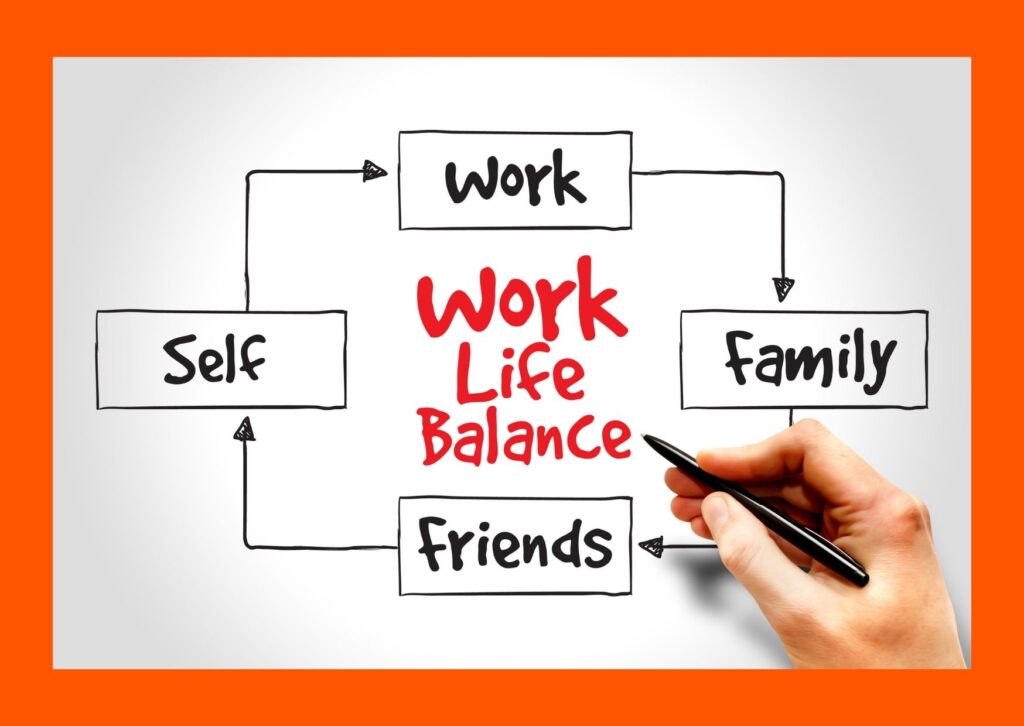
When work-life balance is championed as a vital HR initiative, it signals a company’s understanding of its employee’s lives.
Recognising that employees have commitments, passions, and responsibilities outside the office is crucial.
These initiatives not only reduce burnout and stress but also lead to increased productivity when employees are at work, as they feel rejuvenated and valued.
A company and human resources team that actively promotes a balanced lifestyle often sees a reduction in absenteeism, health-related issues and improved company performance.
These key HR initiatives can help HR leaders and HR professionals create a culture that business leaders love and ultimately drive the business forward.
How to Successfully Implement HR Initiatives
For HR initiatives to truly resonate and be effective, a meticulous and strategic approach is essential.
Here’s an in-depth guide to ensure your initiatives hit the mark:
Conduct a Thorough Assessment
Begin with a comprehensive review of your existing HR strategies.
Identify gaps by gathering data on employee satisfaction, current challenges, and areas that require attention.
Tools like surveys, one-on-one feedback sessions, and data analytics can offer invaluable insights into the unique needs and preferences of your workforce.
Define Your Goals
Articulate the specific outcomes you aim to achieve with each initiative.
This could range from ways to improve employee engagement, ensuring a harmonious work-life balance, to fostering a culture of inclusivity.
A well-defined goal provides direction and serves as a benchmark against which you can measure success.

Secure Stakeholder Support
The success of any initiative hinges on collective buy-in.
Engage with all relevant parties, from senior leadership to frontline employees.
Organise workshops or team meetings to discuss the proposed changes, gather feedback, and ensure everyone is aligned with the vision.
Test Before You Implement
Launch a pilot version of your initiative within a specific department or team.
This ‘trial run’ offers a safe space to identify potential roadblocks, gather feedback, and fine-tune the strategy, ensuring a smoother company-wide rollout later.
Maintain Open Communication
Foster a culture of transparency.
Regularly update all stakeholders about the progress, challenges, and milestones of the initiative.
Use newsletters, intranet updates, or team meetings to highlight the benefits and showcase how these changes align with the company’s overarching objectives.
This can help to improve employee engagement.

Equip Your Team
Ensure everyone has the tools and knowledge to adapt to the new initiatives.
This might involve training workshops, detailed guides, or even bringing in external experts for specialised training sessions.
Feedback is Gold
Construct a robust feedback mechanism.
Whether it’s through digital platforms, suggestion boxes, or regular review meetings, encourage employees to share their experiences, concerns, and suggestions.
This continuous feedback loop is crucial for iterative improvement.
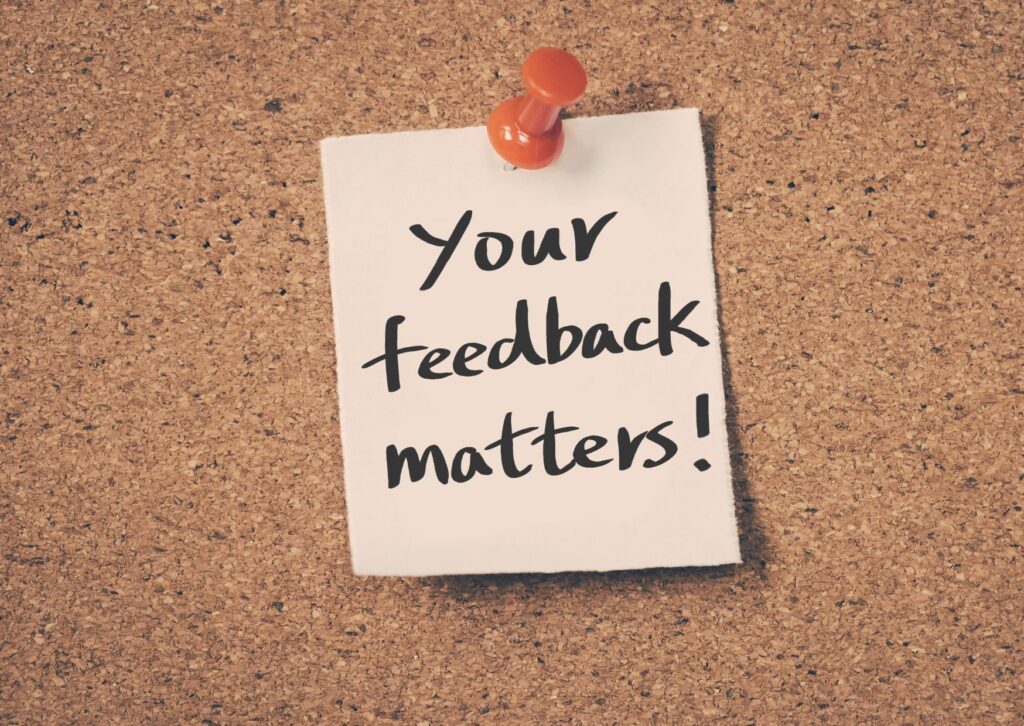
Track Progress
Establish clear metrics and KPIs to monitor the impact of your initiatives.
Regularly review these metrics to understand what’s working and what needs adjustment.
Celebrate milestones to boost morale and acknowledge the collective effort.
Stay Adaptable
The HR landscape is dynamic.
As industry trends evolve and organisational needs shift, be prepared to revisit and revise your initiatives.
This adaptability ensures your strategies remain relevant and effective.
By diving deep into each step of the process, you can ensure that your HR initiatives are not only well-conceived but also yield tangible, positive outcomes for your organisation.
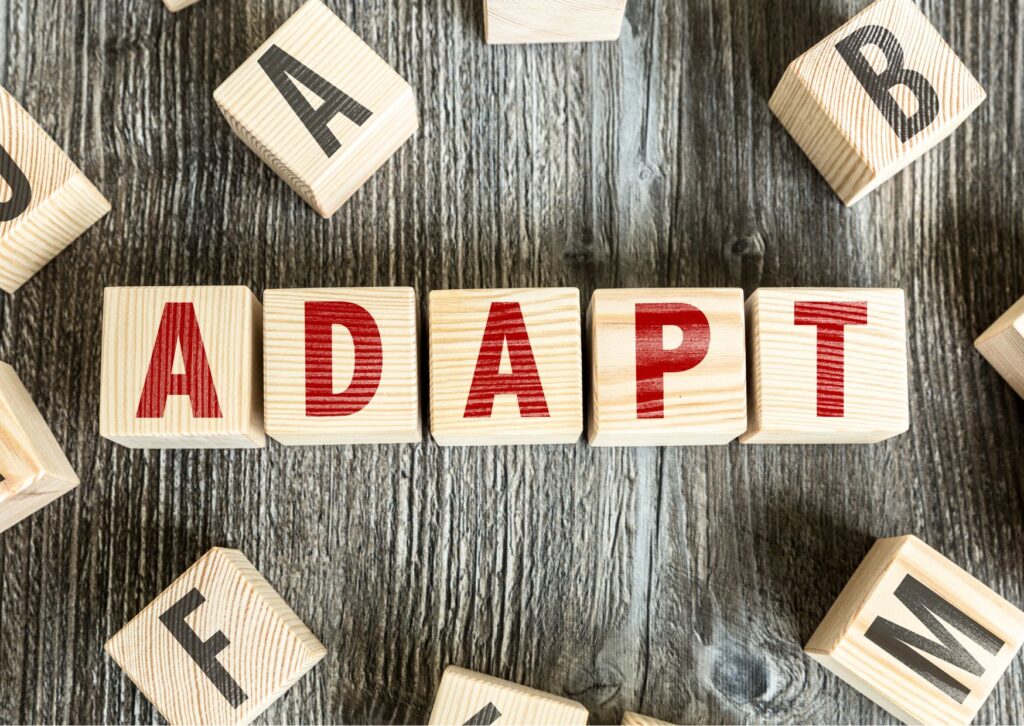
Challenges in Implementing HR Initiatives and How to Overcome Them
Introducing new HR initiatives can be both exciting and daunting.
While the potential benefits are transformative, organisations often encounter challenges that can hinder successful implementation.
In this section, we’ll delve into these challenges and provide actionable solutions to navigate them effectively.
Resistance to Change
Challenge: Employees often resist new initiatives due to fear of the unknown or concern about how changes might affect their roles.
Solution: Foster a culture of open communication.
Address concerns proactively, involve employees in the decision-making process, and highlight the benefits of the new initiatives.

Lack of Resources
Challenge: Implementing new HR strategies might require additional resources, be it time, money, or manpower.
Solution: Prioritise initiatives based on their potential impact.
Consider phased rollouts or pilot programs to test the waters without committing extensive resources.
Inadequate Training
Challenge: Employees might struggle with new initiatives if they aren’t provided with adequate training or resources.
Solution: Invest in comprehensive training programs.
Utilise a mix of workshops, e-learning modules, and hands-on sessions to ensure employees are well-equipped.
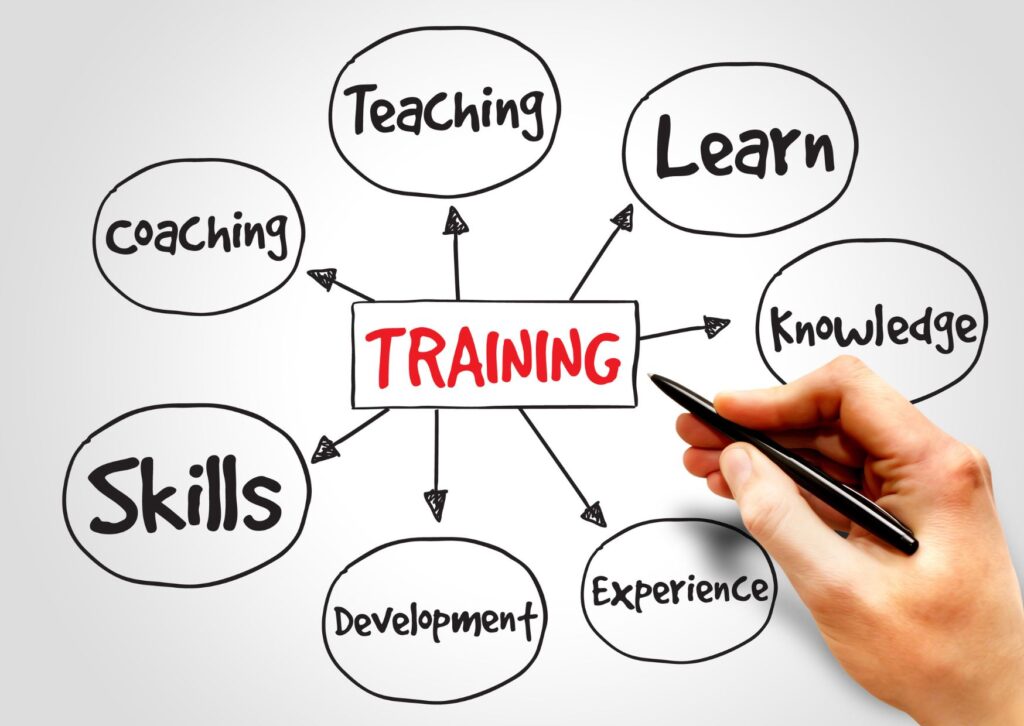
One-Size-Fits-All Approach
Challenge: Every department or team has unique needs.
A generic approach might not yield the desired results across the board.
Solution: HR professionals should customise initiatives based on departmental needs.
Gather feedback and be willing to make adjustments to better suit different teams.
Inconsistent Implementation
Challenge: If initiatives are implemented inconsistently across departments, it can lead to confusion and reduced effectiveness.
Solution: Establish clear guidelines and ensure that team leaders and managers are aligned in their approach.
Regular check-ins can help identify and rectify inconsistencies.
Not Measuring Outcomes
Challenge: Without a system to measure the effectiveness of initiatives, it’s challenging to determine their success or areas of improvement.
Solution: Set clear KPIs and metrics.
Use a management system to keep track of everything.
Use performance reviews to regularly evaluate the performance of these strategic hr initiatives.
Check employee engagement with hr software.

Neglecting Feedback
Challenge: Overlooking employee feedback can lead to a disconnect between what’s implemented and what’s genuinely needed.
Solution: Establish robust feedback mechanisms.
Encourage employees to share their experiences, and be proactive in making necessary adjustments based on their input.
Short-Term Focus
Challenge: Initiatives that only address immediate concerns without considering long-term implications might not be sustainable.
Solution: Adopt a long-term perspective.

While addressing current challenges, ensure that initiatives are scalable and adaptable to future needs.
Implementing HR initiatives comes with its set of challenges, but with a strategic approach, open communication, and a willingness to adapt, these hurdles can be effectively overcome.
The key lies in understanding the unique needs of your organisation and its employees, and crafting strategies that resonate, engage, and deliver.
In conclusion, HR initiatives are all about creating a work environment where employees are valued, motivated, and cared for.
From wellbeing workshops to work-life balance initiatives, each of these efforts plays a part in transforming the workplace into a place where employees love to be.
Because, at the end of the day, a happy employee is a productive employee!
Author
Tyler Lowe – Health & Wellbeing Speaker
BSc Sport & Exercise Rehabilitationengagement

